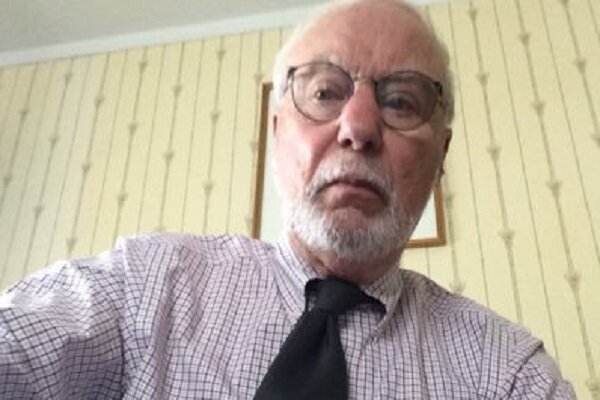U.S. help allies in Ukraine and Taiwan by providing arms: Rutgers professor

TEHRAN - A professor of political science at Rutgers University in New Jersey says that Washington would support Taiwan against China in the way it is helping Ukraine against Russia, giving arms to them rather than deploy troops there.
“Certainly, we would support Taiwan against any effort by China to absorb it, but our help would be the same kind of assistance we give to Ukraine: equipment but no troops,” Ross Baker tells the Tehran Times.
There is speculation that the West, including the U.S., is trying to spread its influence in the former Soviet Republics, something which has angered Moscow.
But Baker says, “Putin's concept of a sphere of influence by Russia that encompasses all surrounding countries is an obsolete idea.” He adds, “Putin is not Stalin or Czar Nicholas and that Russia is not the Soviet Union with its obsession about ‘capitalist encirclement.”
With more than 100,000 Russian troops amassed along the Ukrainian border, Western powers are trying to anticipate when Moscow might shift from threatening an invasion to launching one.
U.S. officials say they're closely monitoring cyber intrusions, like the attack that hit Ukraine's government last month. They're watching not just Russian troops that amass on the border but where they're positioned, and they're keeping an eye on what Russia is doing with its equipment like tanks.
At the same time, some political observers say that ultimately there may not be a clear tip-off for an attack on Ukraine.
U.S. National Security Adviser Jake Sullivan has said the U.S. administration did not know if Russian President Vladimir Putin had made a final decision to invade, but said that the Kremlin was looking for a pretext to justify military action, which he said could start with intense aerial bombardment.
Russia has repeatedly denied any plans to invade Ukraine but says it is ready to take unspecified “military-technical measures” if its demands are not met, including a promise by NATO never to admit Ukraine and to withdraw some troops from Eastern Europe.
Following is the text of the interview:
Q: What is Washington’s top foreign policy priority right now? Containing Iran as a regional player, confronting Russia in Ukraine, or curtaining China’s influence as an emerging superpower?
A: Right now, Russia/Ukraine is the major focus of policymakers in Washington but not far behind is the increasing concern about nuclear enrichment programs in Iran. I suspect that after the Eastern European situation is resolved one way or other that Iran's nuclear issues will rise to the top of the agenda.
Q: Do you think that NATO is going to surround Russia? What would be a U.S. reaction if another power tries to enter into its backyard or sphere of influence?
A: My own view of the Russia-Ukraine issue which, I think is shared by people in Biden Administration, is that Putin's concept of a sphere of influence by Russia that encompasses all surrounding countries is an obsolete idea, that Putin is not Stalin or Czar Nicholas and that Russia is not the Soviet Union with its obsession about "capitalist encirclement".
We simply do not conceive of spheres of influence as they were understood in past centuries and certainly would support Taiwan against any effort by China to absorb it, but our help would be the same kind of assistance we give to Ukraine: equipment but no troops.
Q: Don’t you think that the U.S. is better to concentrate on its close rivals rather than deploying forces to the Eastern hemisphere?
A: The U.S. has hostile governments in the Western hemisphere that it has tolerated for a long time -Venezuela and Nicaragua - and has no plans that I am aware of to invade them.
Allowing a freely-elected government to be absorbed by an authoritarian regime is something that would be opposed by the U.S.
Leave a Comment